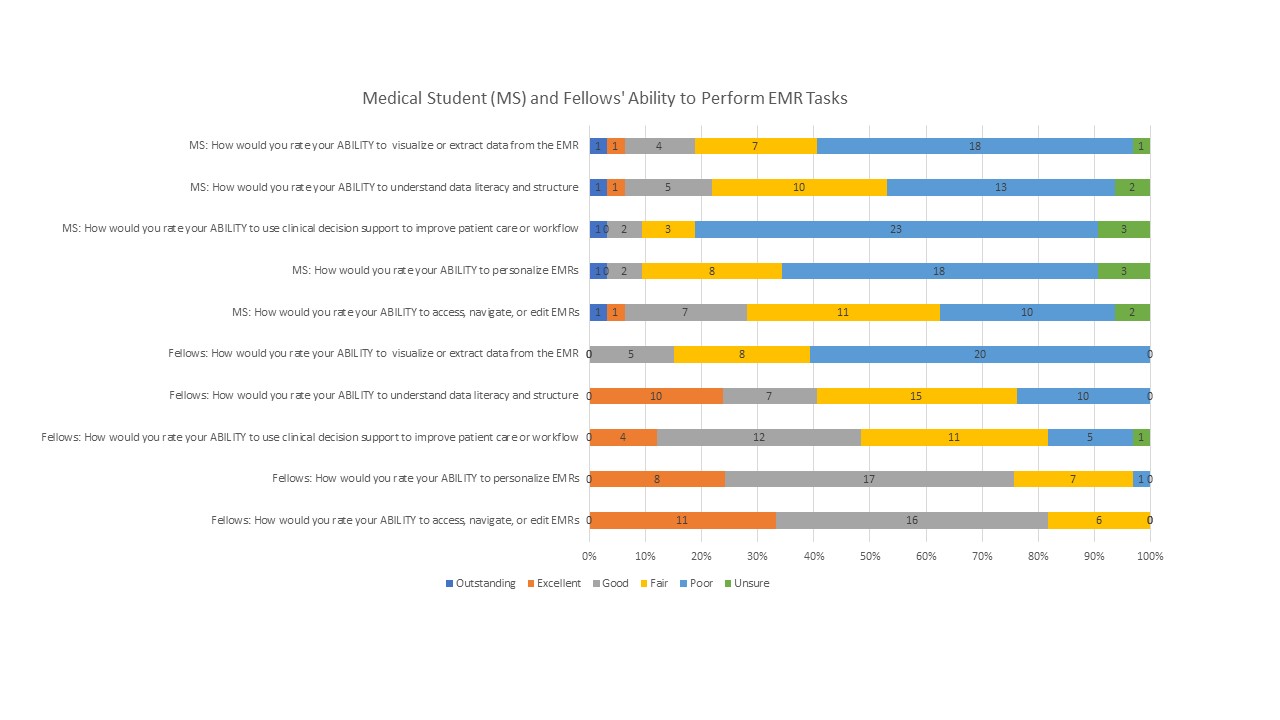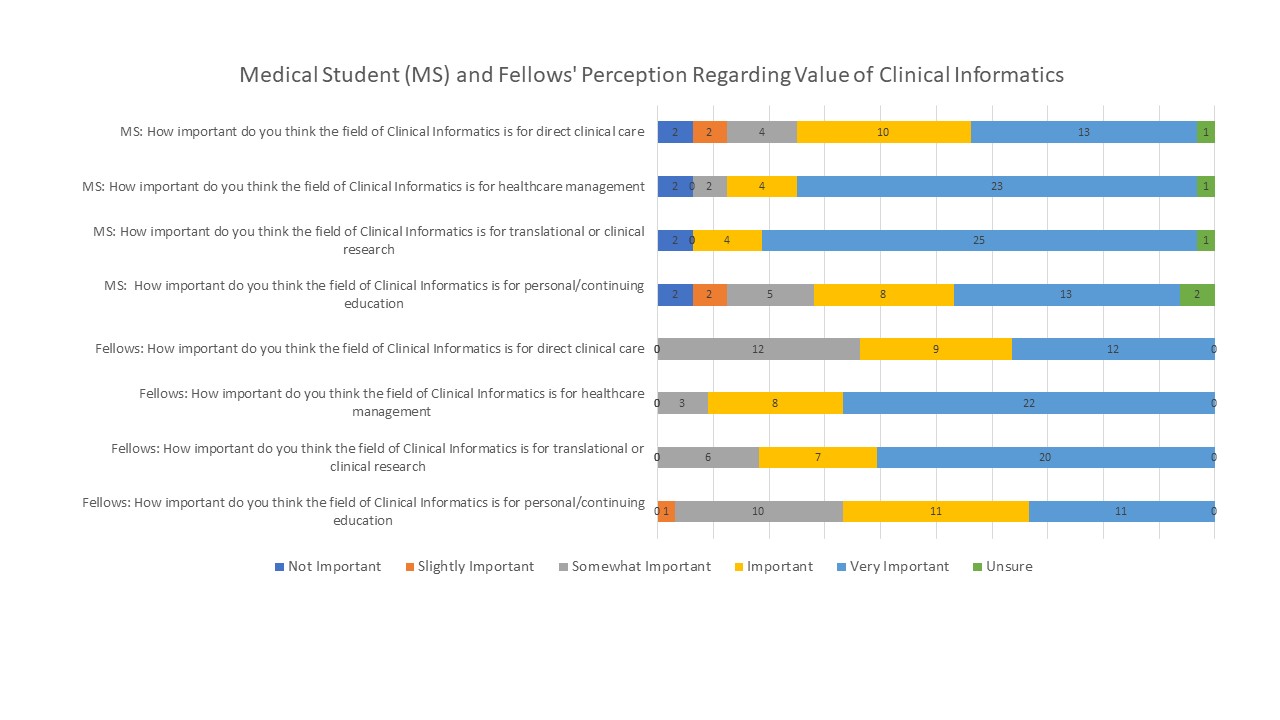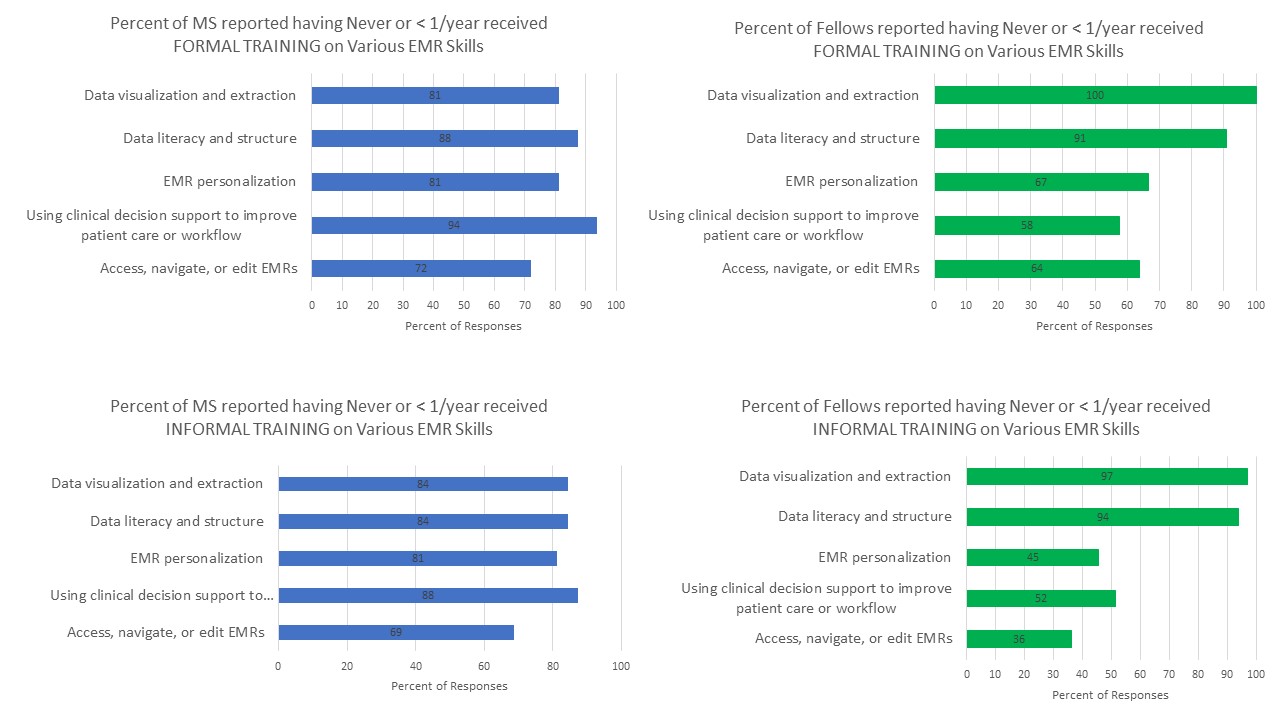Telemedicine/EHR/Medical Informatics
Telemedicine/EHR/Medical Informatics 1
738 - TRAINEES’ INTERESTS AND ATTITUDES TOWARDS INFORMATICS TRAINING
Publication Number: 738.154
- TR
Tiranun Rungvivatjarus, MD (she/her/hers)
Assistant Clinical Professor
Rady Children's Hospital/UCSD
San Diego, California, United States
Presenting Author(s)
Background:
While Electronic Medical Records (EMR) have been almost universally adopted in healthcare settings promising workflow efficiencies and easier acquisition of data, physician training has lagged in both efficient use and application of the EHR. Outside of clinical informatics fellowships, informatics training for pediatric fellows, residents, and medical students (MS) are limited. Providing earlier informatics training to trainees will allow them to better prepare to work more efficiently, be catalysts for needed workflow and EMR training improvements.
Objective:
At our institution, we have informatics training opportunity only for residents but not for fellows or MS. This study surveys clinical and surgical fellows and MS on their experience, attitude, and interest regarding clinical informatics education as a part of their training.
Design/Methods:
This cross-sectional study surveyed pediatric fellows at a large tertiary pediatric health care system and first year MS at the University of California San Diego School of Medicine. The survey was distributed between July and November 2022 electronically to trainees. The survey measured self-rated prior informatics training received, interest, and attitude towards clinical informatics education. Descriptive statistics were generated regarding demographics, proficiency level with various EHR-related tasks.
Results:
In total, 33/57 fellows and 32/110 medical students (39% response rate) completed the survey. Approximately 29% of fellows rated their ability to perform basic EMR tasks (accessing, navigating, or editing EMRs and EMR personalization) outstanding or excellent. Thirteen percent rated their ability to perform advanced EMR tasks (use clinical decision support, understand data literacy, and visualize or extract EMR data) outstanding or excellent. Five percent of MS rated outstanding or excellent in their ability to perform basic and advanced EMR tasks. Over half of the fellows (53%) and 23% of MS were interested in incorporating informatics into their career or training. Most fellows and MS expressed informatics to be important in direct clinical care, healthcare management, research, and continuing education. Trainees, however, reported insufficient EMR training.
Conclusion(s):
Many fellows and medical students reported interest in informatics training found its role to be important in patient care, research, and continuing education. However, EMR training opportunities were limited. Additional informatics training should be offered to trainees to prepare them for a future career in the quickly evolving health care environment.


